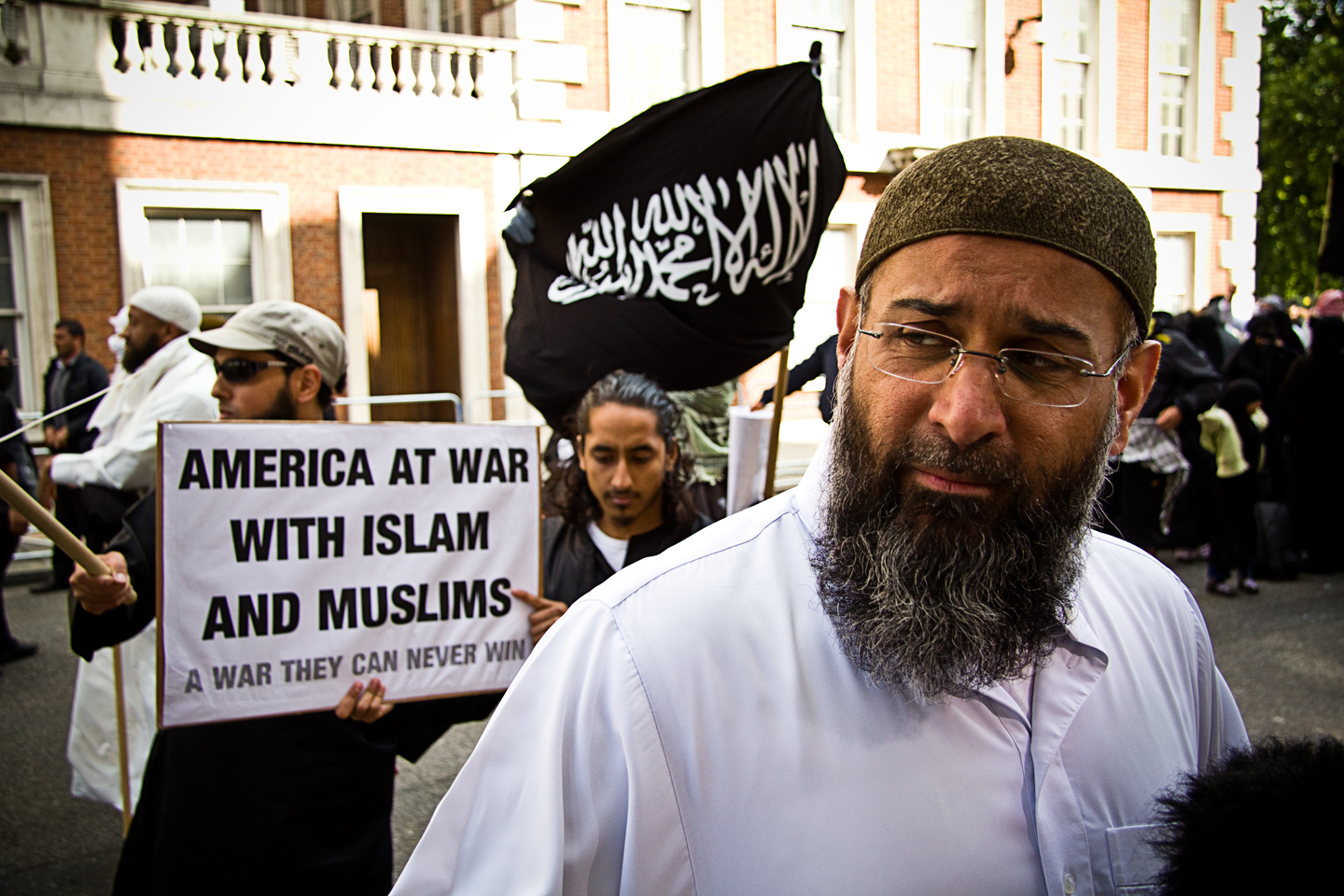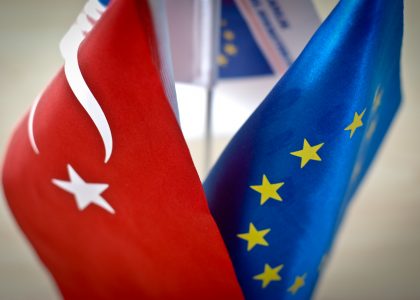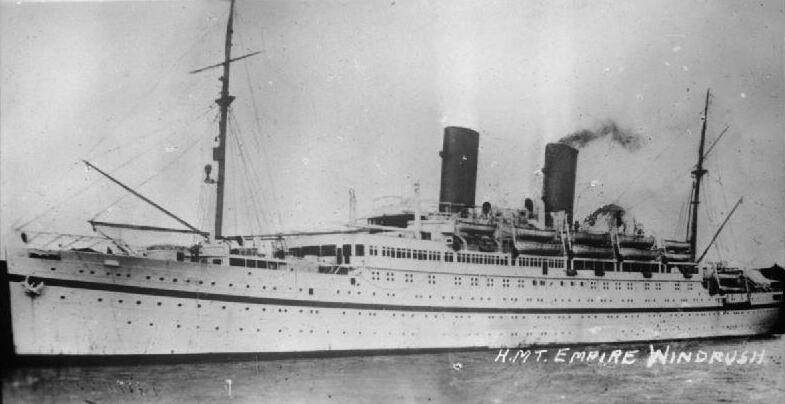Lee Jarvis explores what Anjem Choudary’s conviction for inviting support for Islamic State tells us about UK counterterrorism today
We learned on Tuesday (16 August) that Anjem Choudary – frequently described as a ‘radical cleric’ or ‘hate preacher’ – has been convicted under Section 12 of the Terrorism Act 2000 for inviting support for Islamic State (IS): a banned organisation within the United Kingdom. Choudary has enjoyed a considerable media profile in the United Kingdom and beyond for a number of years now, and was a key figure in other – also banned – groups: Islam4UK and al-Muhajiroun. Critics of Choudary have long-argued for his centrality in perpetuating a climate in which extremism and terrorism can flourish, with his ‘followers’ including the two killers of Lee Rigby in Woolwich in May 2003.
Choudary’s conviction is, I think, an important one as it allows us an opportunity to reflect on four key issues relating to contemporary counter-terrorism powers. The first of these issues is the process by which groups such as Islamic State find themselves on the UK’s list of banned organisations: a process known as proscription. The contents of such lists vary considerably between countries, and, indeed, over time. There are currently eighty groups on the UK’s list of proscribed organisations, for instance; a figure which compares with 60 foreign terrorist organisations listed in the United States, 54 in Canada, and 20 in Australia. Interestingly only 13 groups are proscribed – or banned – in all four of these countries.
Although surprisingly little academic research has been done on proscription beyond a relatively bounded set of questions relating to ethics and effectiveness, the power is an important one not least because it is used to delimit and police the boundaries of what is politically acceptable within a particular territory. As we have seen illustrated in Choudary’s case, the proscription of an organisation makes it a criminal offence to belong to or invite support for a group. But the power also triggers a range of additional offences including in relation to wearing clothing or carrying articles in public ‘which arouse reasonable suspicion that an individual is a member or supporter of a proscribed organisation’ (Home Office, 2011). Advocates of proscription argue that the power plays a vital deterrent role in countering terrorism and that it may, in addition, help disrupt terrorist activities. It is also widely seen to have important symbolic value in delegitimizing the actions of particular organisations, and may contribute to international cooperation within and beyond counter-terrorism efforts.
Critics of proscription, in contrast, argue that the power suffers from considerable problems of designation, politics, legitimacy and effectiveness. Amongst other things, the power runs up against: the challenge of identifying a terrorist group and its members, given that contemporary terrorist groups are frequently amorphous and evolving; dangers of external pressure being applied – from other countries, for instance – in order that particular groups are added to proscribed lists for reasons unrelated to terrorism; potential intrusions on fundamental freedoms of speech and assembly; limited democratic accountability given that proscription decisions are often made on (often understandably) secret intelligence; and, a questionable record of effectiveness in reducing terrorist violence. It is clear, in Choudary’s case, that the power has been successfully employed to secure the conviction of an individual responsible for considerable consternation amongst police, security, and indeed many Muslim, communities for some time. Questions over proscription’s broader effectiveness, however, arguably remain.
A second issue raised by news of Choudary’s conviction is that it spotlights the importance of precursor or inchoate offences within contemporary counter-terrorism regimes. Such offences – which relate to those preliminary or preparatory activities required for a crime to take place – are not unique to counter-terrorism. There are, however, as Stuart Macdonald (2015: 132) points out, a particularly large range of these within the United Kingdom’s current counter-terrorist framework, relating, for instance, to:
- Membership of a proscribed organisation (Terrorism Act 2000, section 11)
- Support for a proscribed organisation (Terrorism Act 2000, section 12)
- Fund-raising for terrorist purposes (Terrorism Act 2000, section 15)
- Use or possession of money or other property for terrorist purposes (Terrorism Act 2000, section 16)
- Failure to disclose information which might assist in preventing an act of terrorism (Terrorism Act 2000, section 38B)
- Possession of an article for terrorist purposes (Terrorism Act 2000, section 57)
- Collecting information or possessing a document likely to be useful to a terrorist (Terrorism Act 2000, section 58)
- Inciting terrorism overseas (Terrorism Act 2000, section 59)
- Encouragement of terrorism (Terrorism Act 2006, section 1)
- Dissemination of terrorist publications (Terrorism Act 2006, section 2)
- Preparation of terrorist acts (Terrorism Act 2006, section 5)
- Training for terrorism (Terrorism Act 2006, section 6)
- Attendance at a place used for terrorist training (Terrorism Act 2006, section 8).
In the case of Choudary’s conviction, his previous successes in avoiding serious criminal charges no doubt highlights the value of such offences for those charged with countering terrorism. At the same time – even if we are satisfied by this conviction – we might want to use these events as an opportunity to note, and perhaps even to reflect on, the of such offences. This is, not least, when we take into consideration with the broad understanding of terrorism within the relevant legislation, and the problems of designation noted above. Indeed, such offences become – potentially – breathtakingly broad, as Stuart Macdonald (2011: 134) continues in his analysis of inchoate offences around terrorism more broadly:
A third feature of this story is the taken-for-granted notion of ‘radicalisation’ within discussion around Choudary’s importance within contemporary terrorism in the UK and beyond. Much of the media commentary on his conviction has pointed to his role in ‘radicalising’ – usually – young, male, Muslims; often using the term as a straightforward description of the process through which an individual journeys toward terrorism, as, for instance, here or here. The problem here is that the term is anything but a straightforward one, and many researchers on ‘terrorism’ (itself a notoriously contested term) reject it because the concept: is an entirely new idea that wasn’t used to describe, for example, republican or loyalist violences in the Northern Ireland ‘troubles’; is not supported by any significant body of academic research; de-emphasises both individual agency and structural contexts such as foreign policy in the causes of terrorism, placing focus squarely on ‘vulnerable’ individuals and/or religion; simplifies and homogenises what is likely to be a complex, multi-directional and variable process guiding any individual’s movement toward ‘terrorism’; and, has been widely used to justify early forms of intervention in the lives of – typically – young men.
These problems do not, of course, mean that Choudary had no role in creating or perpetuating the climate of contemporary extremism (yet another problematic term). They do not even, indeed, mean that his words or deeds were not pivotal in directly causing particular individuals to take action (although being able to posit or demonstrate this causal connection relies upon a set of epistemological assumptions that are rarely acknowledged). The problems do, however, suggest that we might be a little more nuanced and careful in attempting to describe, understand and explain the role of ideologues and ideas in terrorist violences: at least for reasons of analytical clarity, if not for the ‘real world’ challenge of seeking to convict potentially dangerous individuals.
As a final thought, it is worth also noting that this conviction has offered up opportunity for debate around the state of British counter-terrorism powers more broadly. Countering terrorism successfully is a fiendishly challenging task: one that involves making political judgements about security, liberty and other complex values, as well as a negotiation of all of the challenges raised by a form of violence that is, by its nature, secretive and clandestine. When I have had opportunity to speak to individuals who have been directly involved in such efforts – including interviews with former Home Secretary Charles Clarke and former police officer Ian Quinton OBE – I have been struck by the amount of thought and circumspection that goes into the crafting and interpretation of such powers.
At a national level, however, British counter-terrorism policy has tended to suffer from several recurring problems – including the tendency to respond to dramatic events with hasty, knee-jerk and often far-reaching new powers, as charted by scholars such as Andrew Neal, and in our own book on Anti-terrorism, Citizenship and Security. This conviction has, then, perhaps opened space to (re)consider the current state of play here – not least in relation to the impending Counter-extremism and Safeguarding Bill. For some, it will point to the value of current legislative powers and the offences they enact. Others will argue that Choudary’s earlier successes in largely sidestepping the law highlight the need for still further measures: not least given the gravity of the issues with which we are dealing. As I have attempted to argue elsewhere, we might ask at least three fundamental questions of any actual and potential counter-terrorism initiatives: (1) Are they warranted?; (2) Will they work?; (3) Are they worth the consequences? Only if we can answer each of these satisfactorily should we consider supplementing the range of counter-terrorism powers that already exist in the UK.
None of the above is intended as a direct reflection on the legitimacy or effectiveness of Choudary’s conviction. Indeed, at the time of writing, we still await news on his actual sentence. It is useful, however, to use these events as an opportunity to reflect on broader questions relating to the construction of counter-terrorism policy in the UK – here, in relation to (i) proscription; and, (ii) inchoate offences. As suggested above, we might also use them to help us think through efforts to make sense of such powers and their necessity in relation to discourses relating to, for example, (iii) radicalisation.
Dr. Lee Jarvis is a Reader in International Relations at the University of East Anglia





